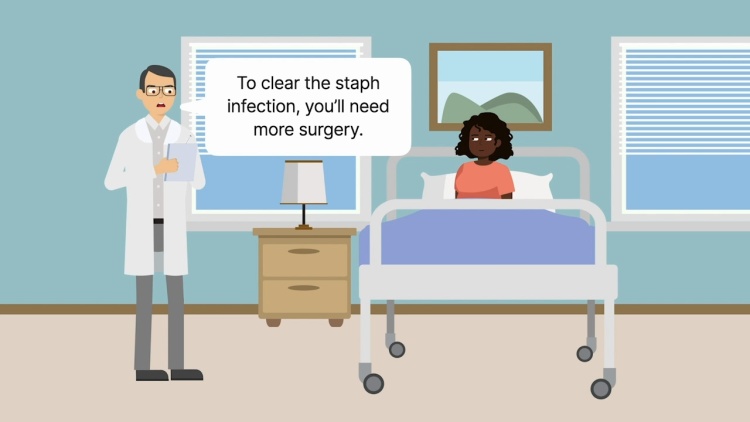Banks v. Elks Club Pride of Tennessee 1102
Tennessee Supreme Court
301 S.W.3d 214 (2010)
- Written by Lauren Petersen, JD
Facts
Alice Banks (plaintiff) was seated at an Elks Lodge social, hosted by Elks Club Pride of Tennessee 1102 (defendant) when her chair collapsed, seriously injuring her back. Dr. Robert Boyce (defendant), a physician at Premier Orthopaedics and Sports Medicine, P.C. (Premier Orthopaedics) (defendant), recommended that Banks undergo surgery involving fusing her vertebrae at the L3–L4 and L4–L5 levels. Banks agreed, and Boyce performed the surgery. After he had completed the surgery, Boyce found that he had inadvertently fused Banks’s L2–L3 and L3–L4 vertebrae. Boyce operated again the following day to correct his mistake. After her surgeries, Banks recuperated at Cumberland Manor Nursing Home (Cumberland). While at Cumberland, Banks developed a staphylococcus infection that required her to undergo further surgeries and medical treatment. Banks sued the Elks Club Pride of Tennessee 1102, Boyce, and Premier Orthopaedics. The defendants moved to amend their answers to raise the affirmative defense of Cumberland’s comparative fault. Banks opposed the defendants’ motions, arguing that the common law’s original-tortfeasor doctrine imputed liability for Banks’s subsequent injuries to the defendants. The trial court ruled against the defendants’ motions. The defendants applied for an interlocutory appeal, which the court of appeals denied. The defendants appealed.
Rule of Law
Issue
Holding and Reasoning (Koch, J.)
What to do next…
Here's why 907,000 law students have relied on our case briefs:
- Written by law professors and practitioners, not other law students. 47,100 briefs, keyed to 996 casebooks. Top-notch customer support.
- The right amount of information, includes the facts, issues, rule of law, holding and reasoning, and any concurrences and dissents.
- Access in your classes, works on your mobile and tablet. Massive library of related video lessons and high quality multiple-choice questions.
- Easy to use, uniform format for every case brief. Written in plain English, not in legalese. Our briefs summarize and simplify; they don’t just repeat the court’s language.





